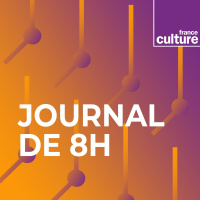Synopsis
Interviews with Economists about their New Books
Episodes
-
Clara E. Mattei, "The Capital Order: How Economists Invented Austerity and Paved the Way to Fascism" (U Chicago Press, 2022)
19/12/2022 Duration: 01h02minA groundbreaking examination of austerity’s dark intellectual origins. For more than a century, governments facing financial crisis have resorted to the economic policies of austerity—cuts to wages, fiscal spending, and public benefits—as a path to solvency. While these policies have been successful in appeasing creditors, they’ve had devastating effects on social and economic welfare in countries all over the world. Today, as austerity remains a favored policy among troubled states, an important question remains: What if solvency was never really the goal? In The Capital Order: How Economists Invented Austerity and Paved the Way to Fascism (University of Chicago Press, 2022), political economist Clara E. Mattei explores the intellectual origins of austerity to uncover its originating motives: the protection of capital—and indeed capitalism—in times of social upheaval from below. Mattei traces modern austerity to its origins in interwar Britain and Italy, revealing how the threat of working-class power in th
-
Chokepoint Capitalism: How Chokepoint Capitalism is Strangling Creative Industries
19/12/2022 Duration: 50minMany of the creative industries look like an hourglass. On the one side, you have creators; on the other, the rest of us. In the middle, Rebecca Giblin and Cory Doctorow say there's often a 'chokepoint.' Corporate behemoths -- be they streaming apps, publishers, tech giants, or others -- put on the squeeze, exploiting their market power to extract rents, push down wages, and push up costs. But Cory and Rebecca have solutions to break the stranglehold, and in this episode of Darts and Letters Cory helps Jay explore various chokepoints, from concert tickets to audiobooks, and how we can open up the industries and get workers paid. SUPPORT THE SHOW You can support the show for free by following or subscribing on Spotify, Apple Podcasts, or whichever app you use. This is the best way to help us out and it costs nothing so we’d really appreciate you clicking that button. If you want to do a little more we would love it if you chip in. You can find us on patreon.com/dartsandletters. Patrons get content early, and o
-
Jeremy L. Wallace, "Seeking Truth and Hiding Facts: Information, Ideology, and Authoritarianism in China" (Oxford UP, 2022)
18/12/2022 Duration: 57minFor decades, a few numbers came to define Chinese politics--until those numbers did not count what mattered and what they counted did not measure up. Seeking Truth and Hiding Facts: Information, Ideology, and Authoritarianism in China (Oxford UP, 2022) argues that the Chinese government adopted a system of limited, quantified vision in order to survive the disasters unleashed by Mao Zedong's ideological leadership. Political scientist Jeremy Wallace explains how that system worked and analyzes how the problems that accumulated in its blind spots led Xi Jinping to take drastic action. Xi's neopolitical turn--aggressive anti-corruption campaigns, reassertion of party authority, and personalization of power--is an attempt fix the problems of the prior system, as well as a hedge against an inability to do so. The book argues that while of course dictators stay in power through coercion and cooptation, they also do so by convincing their populations and themselves of their right to rule. Quantification is one too
-
Quentin Bruneau, "States and the Masters of Capital: Sovereign Lending, Old and New" (Columbia UP, 2022)
18/12/2022 Duration: 51minToday, states' ability to borrow private capital depends on stringent evaluations of their creditworthiness. While many presume that this has long been the case, Quentin Bruneau argues that it is a surprisingly recent phenomenon--the outcome of a pivotal shift in the social composition of financial markets. Investigating the financiers involved in lending capital to sovereigns over the past two centuries, Bruneau identifies profound changes in their identities, goals, and forms of knowledge. In States and the Masters of Capital (Columbia University Press, 2022), he shows how an old world made up of merchant banking families pursuing both profit and status gradually gave way to a new one dominated by large companies, such as joint stock banks and credit rating agencies, exclusively pursuing profit. Lacking the web of personal ties to sovereigns across the world that their established rivals possessed, these financial institutions began relying on a different form of knowledge created to describe and compare s
-
The Future of the Arms Industry: A Discussion with Pieter D. Wezeman
17/12/2022 Duration: 45minIf you read the business pages of most newspapers, they are filled with stories about the sort of companies that people do business with – airlines, retail outlets, football clubs and the like. There tend to be far fewer stories about the arms industry - unless it’s about some scandal – generally bribes or sales to governments with poor human rights records. So today we are discussing the future of the arms industry with Pieter D. Wezeman who researches these matters at the leading institute in this area, the Stockholm International Peace Research Institute or SIPRI. Learn more about your ad choices. Visit megaphone.fm/adchoices Support our show by becoming a premium member! https://newbooksnetwork.supportingcast.fm/economics
-
Dan Slater and Joseph Wong, "From Development to Democracy: The Transformations of Modern Asia" (Princeton UP, 2022)
17/12/2022 Duration: 58minWhy some of Asia’s authoritarian regimes have democratized as they have grown richer—and why others haven’t Over the past century, Asia has been transformed by rapid economic growth, industrialization, and urbanization—a spectacular record of development that has turned one of the world’s poorest regions into one of its richest. Yet Asia’s record of democratization has been much more uneven, despite the global correlation between development and democracy. Why have some Asian countries become more democratic as they have grown richer, while others—most notably China—haven’t? In From Development to Democracy: The Transformations of Modern Asia (Princeton University Press, 2022),' Dan Slater and Joseph Wong offer a sweeping and original answer to this crucial question. Slater and Wong demonstrate that Asia defies the conventional expectation that authoritarian regimes concede democratization only as a last resort, during times of weakness. Instead, Asian dictators have pursued democratic reforms as a proactive
-
Walt Bogdanich and Michael Forsythe, "When McKinsey Comes to Town: The Hidden Influence of the World's Most Powerful Consulting Firm" (Doubleday, 2022)
16/12/2022 Duration: 35minAn explosive, deeply reported exposé of McKinsey & Company, When McKinsey Comes to Town: The Hidden Influence of the World's Most Powerful Consulting Firm (Doubleday, 2022) by Walt Bogdanich and Michael Forsythe (Doubleday, 2022) highlights the often drastic impact of the most prestigious consulting company in the world. McKinsey's vaunted statement of values asserts that its role is to make the world a better place, but what does it actually do? Often McKinsey's advice boils down to major cost-cutting, including layoffs and maintenance reductions, to drive up short-term profits, thereby boosting a company's stock price and the wealth of its executives who hire it, at the expense of workers and safety measures. McKinsey also collects millions of dollars advising government agencies. Bogdanich and Forsythe have penetrated the veil of secrecy surrounding McKinsey by conducting hundreds of interviews, obtaining thousands of revelatory documents, and following the money. When McKinsey Comes to Town is a landmark
-
Karen Levy, "Data Driven: Truckers, Technology, and the New Workplace Surveillance" (Princeton UP, 2022)
15/12/2022 Duration: 34minLong-haul truckers are the backbone of the American economy, transporting goods under grueling conditions and immense economic pressure. Truckers have long valued the day-to-day independence of their work, sharing a strong occupational identity rooted in a tradition of autonomy. Yet these workers increasingly find themselves under many watchful eyes. Data Driven: Truckers, Technology, and the New Workplace Surveillance (Princeton UP, 2022) examines how digital surveillance is upending life and work on the open road, and raises crucial questions about the role of data collection in broader systems of social control. Karen Levy takes readers inside a world few ever see, painting a bracing portrait of one of the last great American frontiers. Federal regulations now require truckers to buy and install digital monitors that capture data about their locations and behaviors. Intended to address the pervasive problem of trucker fatigue by regulating the number of hours driven each day, these devices support addition
-
Barbara Katz Rothman, "The Biomedical Empire: Lessons Learned from the COVID Pandemic" (Stanford UP, 2021)
11/12/2022 Duration: 52minWe are all citizens of the Biomedical Empire, though few of us know it, and even fewer understand the extent of its power. In this book, Barbara Katz Rothman clarifies that critiques of biopower and the "medical industrial complex" have not gone far enough, and asserts that the medical industry is nothing short of an imperial power. Factors as fundamental as one's citizenship and sex identity—drivers of our access to basic goods and services—rely on approval and legitimation by biomedicine. Moreover, a vast and powerful global market has risen up around the empire, making it one of the largest economic forces in the world. In The Biomedical Empire: Lessons Learned from the COVID Pandemic (Stanford UP, 2021), Katz Rothman shows that biomedicine has the key elements of an imperial power: economic leverage, the faith of its citizens, and governmental rule. She investigates the Western colonial underpinnings of the empire and its rapid intrusion into everyday life, focusing on the realms of birth and death. This
-
Julia Ticona, "Left to Our Own Devices: Coping with Insecure Work in a Digital Age" (Oxford UP, 2022)
09/12/2022 Duration: 52minHello, world! This is the Global Media & Communication podcast series. In this episode, our host Florence Madenga discusses the book Left to Our Own Devices Coping with Insecure Work in a Digital Age (2022) by Dr. Julia Ticona. You’ll hear about: Dr. Ticona’s intellectual trajectory and how her first monograph has been transformed from a dissertation project into a book What audience the book is intended for and what critical scholarship means for the author The design of the research project and the processes and ethics of conducting research about the gig economy How the ongoing pandemic has changed or altered the way Dr. Ticona thinks about this book The core arguments and take-away points from the book around keywords such as “digital inequality,” “precarity,” “platform economy,” and “digital hustle” The global implications of a study on low-wage gig economy workers in the American labor market The question of agency in workers’ everyday life and how people survive in the global platform economy T
-
The Future of AI in Work: A Discussion with Daniel Susskind
09/12/2022 Duration: 51minWhat exactly can artificial intelligence do? It’s an issue some of the professions are grappling with – on the face of it, law is an area that rests on fine human judgment – but in fact many of tasks it involves can be performed by AI and if that is true for law then presumably it is also true for many other areas too. Daniel Susskind of Oxford University discusses his book The Future of the Professions: How Technology Will Transform the World of Human Experts (Oxford UP, 2022), Owen Bennett-Jones is a freelance journalist and writer. A former BBC correspondent and presenter he has been a resident foreign correspondent in Bucharest, Geneva, Islamabad, Hanoi and Beirut. He is recently wrote a history of the Bhutto dynasty which was published by Yale University Press. Learn more about your ad choices. Visit megaphone.fm/adchoices Support our show by becoming a premium member! https://newbooksnetwork.supportingcast.fm/economics
-
Robert L. Hetzel, "The Federal Reserve: A New History" (U Chicago Press, 2022)
08/12/2022 Duration: 01h42minIn The Federal Reserve: A New History (University of Chicago Press, 2022), Robert Hetzel draws on a 43-year career as an economist in the central bank to trace the influence of the Fed on the American economy. Hetzel compares periods in which the Fed stabilized the economy and periods in which it destabilized the economy. He draws lessons about what monetary rule is stabilizing. Recast through this lens and enriched with archival materials, Hetzel's sweeping history offers a new understanding of the bank's watershed moments since 1913. They include critical accounts of the Great Depression, the Great Inflation, and the Great Recession. The Federal Reserve: A New History arrives as a critical history for a critical moment. It promises to recast our understanding of the central bank in its second century. Robert L. Hetzel is a visiting scholar at the Federal Reserve Bank of Chicago and a senior affiliated scholar at the Mercatus Center at George Mason University. Caleb Zakarin is the Assistant Editor of the New
-
Elizabeth Tandy Shermer, "Indentured Students: How Government-Guaranteed Loans Left Generations Drowning in College Debt" (Harvard UP, 2021)
04/12/2022 Duration: 01h04minIt didn't always take thirty years to pay off the cost of a bachelor's degree. In Indentured Students: How Government-Guaranteed Loans Left Generations Drowning in College Debt (Harvard UP, 2021), Elizabeth Tandy Shermer untangles the history that brought us here and discovers that the story of skyrocketing college debt is not merely one of good intentions gone wrong. In fact, the federal student loan program was never supposed to make college affordable. The earliest federal proposals for college affordability sought to replace tuition with taxpayer funding of institutions. But Southern whites feared that lower costs would undermine segregation, Catholic colleges objected to state support of secular institutions, professors worried that federal dollars would come with regulations hindering academic freedom, and elite-university presidents recoiled at the idea of mass higher education. Cold War congressional fights eventually made access more important than affordability. Rather than freeing colleges from th
-
The Future of Xi and China: A Discussion with Sue Lin Wong
30/11/2022 Duration: 49minWhat will a Chinese-dominated world look like? And since Xi Jin Ping will probably rule China for life, what does he want to do; what does he believe in and what does he mean for China and the world? Sue Lin Wong has made an excellent podcast series on him called "The Prince: Searching for Xi Jinping" and discussed the Chinese leader with Owen Bennett-Jones. Owen Bennett-Jones is a freelance journalist and writer. A former BBC correspondent and presenter he has been a resident foreign correspondent in Bucharest, Geneva, Islamabad, Hanoi and Beirut. He is recently wrote a history of the Bhutto dynasty which was published by Yale University Press. Learn more about your ad choices. Visit megaphone.fm/adchoices Support our show by becoming a premium member! https://newbooksnetwork.supportingcast.fm/economics
-
Mathematical Morality: The Ideology that Justifies Billionaires
30/11/2022 Duration: 49minHow can billionaires justify the endless accumulation of wealth? Effective altruism. An almost religious philosophical belief. Sam Bankman-Fried, the former CEO and founder of collapsed crypto exchange FTX is a major proponent, as is Elon Musk. Now, SBF and many in Effective Altruism have also embraced longtermism, a strand of extreme utilitarian thinking that tells us we should worry about the interests of future people -- trillions of future people, 1000s of years into the future, and in planets far away. We examine the complicated moral math of longtermism with Émile P. Torres, a former longtermist who is now one of the movement's sharpest apostates. SUPPORT THE SHOW You can support the show for free by following or subscribing on Spotify, Apple Podcasts, or whichever app you use. This is the best way to help us out and it costs nothing so we’d really appreciate you clicking that button. If you want to do a little more we would love it if you chip in. You can find us on patreon.com/dartsandletters. Patrons
-
Paul Belleflamme and Martin Peitz, "The Economics of Platforms: Concepts and Strategy" (Cambridge UP, 2021)
30/11/2022 Duration: 50minDigital platforms controlled by Alibaba, Alphabet, Amazon, Facebook, Netflix, Tencent and Uber have transformed not only the ways we do business, but also the very nature of people's everyday lives. It is of vital importance that we understand the economic principles governing how these platforms operate. Paul Belleflamme and Martin Peitz's book The Economics of Platforms: Concepts and Strategy (Cambridge UP, 2021) explains the driving forces behind any platform business with a focus on network effects. The authors use short case studies and real-world applications to explain key concepts such as how platforms manage network effects and which price and non-price strategies they choose. This self-contained text is the first to offer a systematic and formalized account of what platforms are and how they operate, concisely incorporating path-breaking insights in economics over the last twenty years. Martin Peitz is professor of economics at the University of Mannheim (since 2007), a director of the Mannheim Cent
-
Trevor Jackson, "Impunity and Capitalism: The Afterlives of European Financial Crises, 1690-1830" (Cambridge UP, 2022)
30/11/2022 Duration: 01h07minWhose fault are financial crises, and who is responsible for stopping them, or repairing the damage? Impunity and Capitalism: The Afterlives of European Financial Crises, 1690-1830 (Cambridge University Press, 2022) develops a new approach to the history of capitalism and inequality by using the concept of impunity to show how financial crises stopped being crimes and became natural disasters. Dr. Trevor Jackson examines the legal regulation of capital markets in a period of unprecedented expansion in the complexity of finance ranging from the bankruptcy of Europe's richest man in 1709, to the world's first stock market crash in 1720, to the first Latin American debt crisis in 1825. He shows how, after each crisis, popular anger and improvised policy responses resulted in efforts to create a more just financial capitalism but succeeded only in changing who could act with impunity, and how. Henceforth financial crises came to seem normal and legitimate, caused by impersonal international markets, with the cost
-
Agathe Demarais, "Backfire: How Sanctions Reshape the World Against U.S. Interests" (Columbia UP, 2022)
29/11/2022 Duration: 01h07minSanctions have become the go-to foreign policy tool for the United States. Coercive economic measures such as trade tariffs, financial penalties, and export controls affect large numbers of companies and states across the globe. Some of these penalties target nonstate actors, such as Colombian drug cartels and Islamist terror groups; others apply to entire countries, including North Korea, Iran, and Russia. U.S. policy makers see sanctions as a low-cost tactic, but in reality these measures often fail to achieve their intended goals--and their potent side effects can even harm American interests. Backfire: How Sanctions Reshape the World Against U.S. Interests (Columbia UP, 2022) explores the surprising ways sanctions affect multinational companies, governments, and ultimately millions of people around the world. Drawing on interviews with experts, policy makers, and people in sanctioned countries, Agathe Demarais examines the unintended consequences of the use of sanctions as a diplomatic weapon. The prolif
-
Tim Walker and Lucian Morris, "The Handbook of Banking Technology" (John Wiley & Sons, 2021)
28/11/2022 Duration: 01h22minIn The Handbook of Banking Technology (John Wiley & Sons, 2021), Walker and Morris provide a first comprehensive view of the systems that support a bank. During the interview, they bring out the interactions of these components and how the themes they touch on in the book come together. Years of first-hand experience combined with detailed research come together to explain the intricacies of the technological architecture of modern banking. Quite often the authors provide a long-term perspective of how these applications develop in order to provide a better understanding of how we got to where we are. The other podcast mentioned in this interview is James Bessen "The New Goliaths". Bernardo Batiz-Lazo is currently straddling between Newcastle and Mexico City. You can find him on twitter on issues related to business history of banking, fintech, payments and other musings. Not always in that order. @BatizLazo Learn more about your ad choices. Visit megaphone.fm/adchoices Support our show by becoming a premi
-
Jennifer Mittelstadt and Mark R. Wilson, "The Military and the Market" (U Pennsylvania Press, 2022)
25/11/2022 Duration: 53minThroughout its history, the U.S. military has worked in close connection to market-based institutions and structures. It has run systems of free and unfree labor, taken over private sector firms, and both spurred and snuffed out economic development. It has created new markets―for consumer products, for sex work, and for new technologies. It has operated as a regulator of industries and firms and an arbitrator of labor practices. And in recent decades it has gone so far as to refashion itself from the inside, so as to become more similar to a for-profit corporation. The Military and the Market (U Pennsylvania Press, 2022) covers two centuries of history of the U.S. military’s vast and varied economic operations, including its often tense relationships with capitalist markets. Collecting new scholarship at the intersection of the fields of military history, business history, policy history, and the history of capitalism, the nine chapters feature important new research on subjects ranging from Civil War soldie














